Low-budget movies screen at Fantastic Film Festival
Working outside the mainstream, microbudget film directors are making horror flicks for fun, not profit.
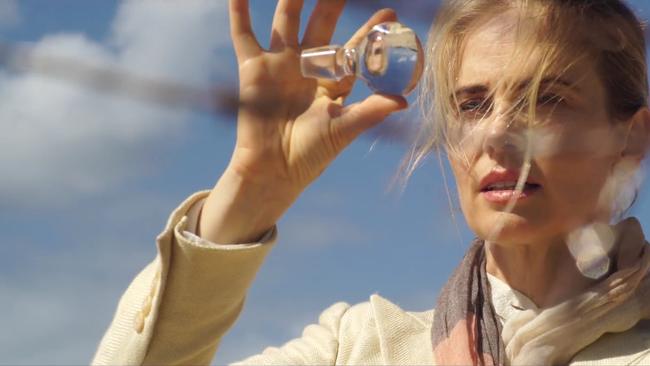
When Sam Curtain was growing up in Hobart, he and two school friends discovered they had a shared love of slasher and horror films – classics of the genre such as Evil Dead, The Exorcist and Dawn of the Dead. By their mid-20s they were starting to make short films, then their own feature-length movies. Curtain and friends Benjamin Jung-Clarke and Thomas Roach have now made three features together, most recently their grimly sadistic horror movie Beaten to Death.
“When I was growing up, Mum didn’t like me watching horror and the really violent stuff,” says Curtain, 37. “So as soon as I could get my hands on it, I just consumed it. We all just gravitated towards it.”
As a title, Beaten to Death aptly describes the contents. With Jung-Clarke as writer and Roach as leading man, the 90-minute film is about a young couple’s misadventure in rural Tasmania that begins with the blessedly swift death of one and the drawn-out, agonising torture of the other. It’s bloody, violent, unrelenting and at times harrowing to watch.
Particularly gruesome is the scene in which Roach’s character, Jack, has both of his eyes cut out. As the screen goes black, Jack can hear only the taunting voice of his tormentor.
Beaten to Death is screening at this month’s Fantastic Film Festival, a program that includes new releases and cult classics, and which also has a berth for local films that have been made outside the more established channels of film production, funding and distribution.
Other low-budget Australian titles in the festival are the supernatural thriller Blur, and The End of History, a drug and music odyssey written and shot in just eight days by first-time filmmakers.
Curtain says his microbudget feature was made for less than $20,000 and using a single digital camera, a Sony A7S III. Money was saved by doubling up on production duties, so that Curtain was also the cameraman and editor, while Jung-Clarke was the sound recordist and Roach was also a producer. Friends and family were rallied to lend a hand. The result is a feature that looks good on screen, moody and bleak, and whose cinematography does not betray the extremely modest production budget. The film was shot on desolate-looking farmland in Tasmania’s Midlands.
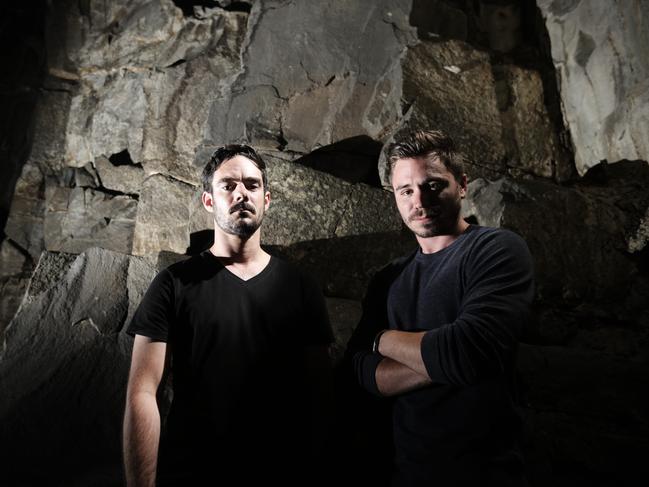
“It comes with experience, and picking the right time of day and location,” says Curtain, who works as a videographer in Hobart. “There were times when we went back and re-shot stuff, just to get the light right. Something I noticed is that shooting in Tassie during winter, the sun stays quite low across the whole day, which gives a nice soft, diffused light …
“It’s been interesting to see the digital revolution, which has brought about small-budget movies like ours, as having access to technology and cheap gear can produce a good result.”
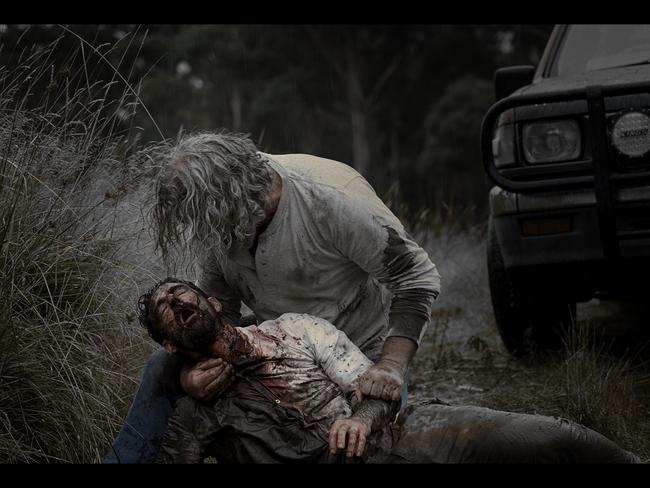
While Beaten to Death and Curtain’s two previous features – Blood Hunt and Slaughterhouse Killer – have had festival screenings or been picked up by specialist distributors overseas, Curtain says his films have not been successful in securing funding from local screen agencies.
“The movies we’ve made are perhaps difficult for a funding body to get behind,” he says. “And we have probably been too impatient to go through the development process that they would be looking for, before they would be willing to support something like this.”
Rather than waiting for official approval, Curtain and co have just got on with making the films they want to make.
“I would rather be in there doing it, and be hands-on, than spending 10 years saying, ‘I just want to make my movie’,” he says.
Hudson Sowada, founder and artistic director of the Fantastic Film Festival, says Beaten to Death is an interesting example of low-budget genre film, made without the backing of a studio or funding agency, yet satisfying a dedicated international audience. Screening in festivals or in niche programs, the movies may never have a mainstream cinema release or be captured in data about screen production, yet they represent a dimension of Australian filmmaking that doesn’t play by the official rules.
“Beaten to Death is an extension of the Ozploitation era of film – this gonzo, over the top, exploitative genre of filmmaking, but with a contemporary aesthetic, and just savage,” Sowada says.
“At the end of the day, your job as a filmmaker is to entertain an audience, and also to subvert things in some way. You are asking people to spend their money on you, to entertain them, and genre film is such an excellent way to do that.”
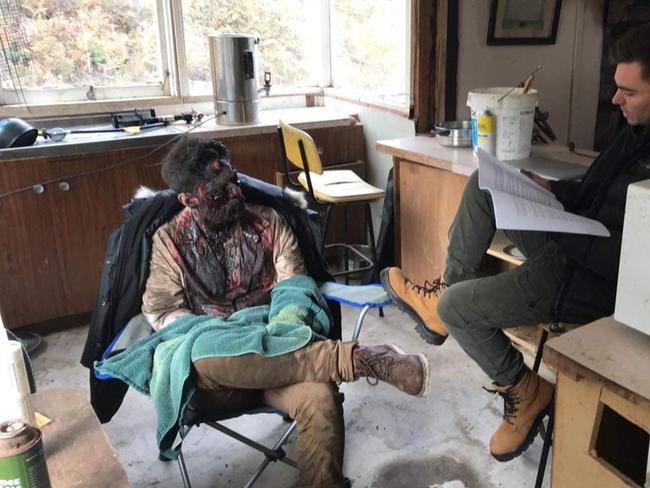
The Fantastic Film Festival is run by Moving Story Entertainment, the owner of four cinemas including the Lido in Melbourne’s Hawthorn and the Ritz in Sydney’s Randwick, which are screening the festival films. Hudson started the festival four years ago as a showcase of daring, wacky, unconventional cinema, and it attracts an enthusiastic audience.
The program includes a restored version of Japanese horror flick Audition, Rolf de Heer’s new feature The Survival of Kindness, which screened at the Berlin film festival, and opening-night film Polite Society.
And there are some fun special events: a nude session of Ben Stiller’s Zoolander, a Stink-o-Vision screening of Teenage Mutant Ninja Turtles, and a mystery film that for legal reasons to do with copyright cannot be named but is described in the program as An Untitled and Perfectly-Legal Coming-of-Age Parody Film.
“It’s a trans coming-of-age story, it’s truly excellent and exciting,” Sowada says. “There are no legal issues with screening it, it’s just the language that’s used, while they clear up their legal dispute.”
Sowada, 26, has spent his life around independent and cult cinema. His father, Richard Sowada, founded Perth’s Revelation Film Festival in 1997, and Hudson was caught up in the promotion and screenings of the event.
“I was in a pram with my dad running around, putting up illegal posters for the festival around Fremantle,” he says. “I was sneaking into R-rated films as a young kid, and cutting my teeth on that spirit of filmmaking. Then I managed a cinema for a number of years, and I got the opportunity to put together a festival four years ago.”
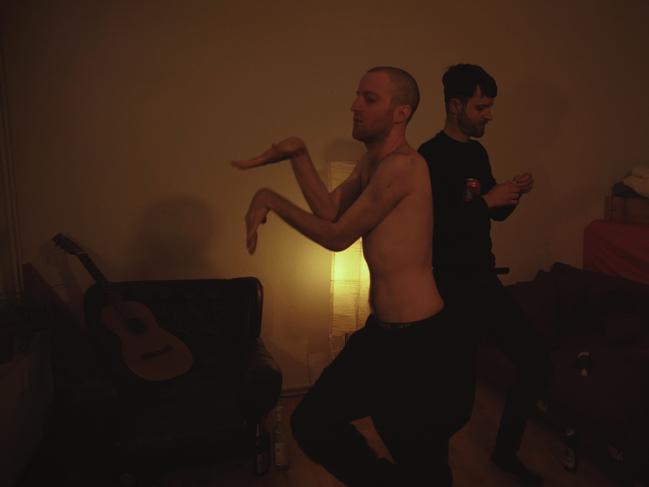
Sowada says there has been a change in the way audiences discover and engage with non-mainstream cinema, largely driven by social media and platforms such as Letterboxd, a site where fans can write reviews and share their love of film. “There is a festival scene that is academic, and clubby, and there’s a gatekeeping element to it,” he says.
“But now, there are a lot of ways for people who aren’t perhaps connected to film academia who just want to experience crazy and wonderful and exciting films.
“It has really sparked a new audience for cult and experimental cinema that beforehand was really hard to discover. It’s no longer in the hands of critics, it’s much more in the hands of people and punters who are making content … The festival is really trying to cater to people who see a trailer, or see something on TikTok or Letterboxd that is really compelling.”
He says audiences at the Fantastic Film Festival are up for anything and enjoy being exposed to movies that aren’t part of the usual multiplex offering.
“The ethos of the festival is to provide audiences with films unlike anything they have seen before – provocative, challenging, intensely entertaining, and really pushing the medium forward in fun, exciting and bold ways,” he says.
“They are a risk-taker audience, and want to experience things that they haven’t seen before. They leave the cinema going, ‘WTF?’, or having a story about this wild thing they saw at the weekend. When we started it, it was a genre program, but since then we have built it out to explore all elements of the festival circuit – from European art house, to low-budget schlocky exploitation cinema, to local content and films that take a bit of a risk and have a lot of fun at the same time.”
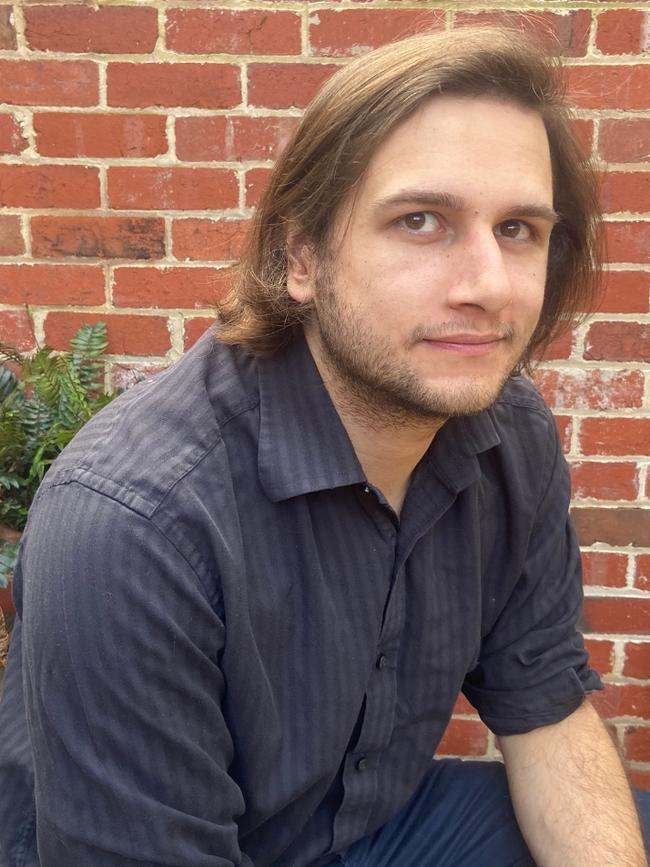
The Fantastic Film Festival provides a forum for low-budget filmmakers such as Curtain to get their movies before an audience. Curtain also has shown his films at A Night of Horror International Film Festival in Sydney and recently has signed a distribution deal in the US.
Films such as Beaten to Death don’t show up in official reports about Australian screen production because they do not have mainstream funding and distribution. But they demonstrate an independent spirit that bucks against the larger trend. Last year’s Drama Report from Screen Australia posted a record spend on film, TV and streaming production worth $2.29bn, driven largely by big-budget projects. But the report reveals that the number of Australian theatrical feature films in production is well below average, and low-budget films – made for less than $1m – continue to decline.
Curtain says his three features have made enough of a return to cover their cash outlay, and while some deferred payments are outstanding, “we also haven’t lost money, either”. But there’s a sense that Curtain and other microbudget directors like him are in the game more for fun than profit.
“You’ve got to be passionate, and you have to find people who are passionate with you,” he says. “That’s the most important thing, to get this stuff off the ground.”
The Fantastic Film Festival is at the Lido, Hawthorn, and the Ritz, Randwick, from Friday to April 30.

To join the conversation, please log in. Don't have an account? Register
Join the conversation, you are commenting as Logout